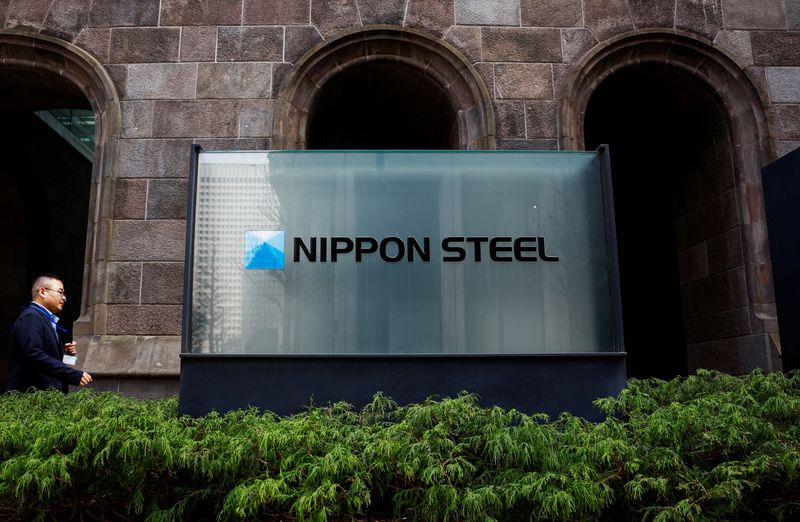WASHINGTON (Reuters) – Nippon Steel defended its $14.9 billion bid for U.S. Steel, arguing it would strengthen the U.S. steel industry and that politics is motivating U.S. opposition to the deal, according to a strongly worded letter was first reported by Reuters.
Here is a summary of some of the key arguments Nippon Steel is making to refute the national security risks outlined by the Committee on Foreign Investment in the United States (CFIUS), as first reported by Reuters.
CFIUS on Japan as an ally
In its letter to the companies, CFIUS described Japan as “a critical ally of the United States,” adding that the committee “considered the importance of our alliance to the national security of both countries.”
Response from Nippon Steel and US Steel
In their response, the steel companies described the statement as ‘essentially paid lip service’. The committee “does not seriously address that fact or explain how it affects their analysis of the risks,” the companies said, adding that CFIUS does not take into account a U.S.-Japan agreement that “explicitly recognizes that Japanese steel poses no risk to the US market.”
The companies also claim that CFIUS has “never previously blocked an acquisition by a Japanese company.”
CFIUS on India
CFIUS suggests that Nippon Steel could decide to move U.S. production to India, citing its presence and reported expansion there and relatively lower production costs.
“India is one of the largest manufacturing markets for Nippon Steel outside of China,” CFIUS said, citing public reports suggesting that Nippon Steel plans to double manufacturing capacity in India by 2030.
“A review of the total costs of steel production at plants in the United States and India shows that costs in the United States are significantly higher than those in India,” it added.
Response from Nippon Steel and US Steel
The companies counter that Nippon Steel’s expansion into India will not threaten its entry into the US. “India is a growth market for Nippon Steel, but that growth will not come at the expense of Nippon Steel’s commitment to the US market,” they said. .
“Simply put, Nippon Steel plans to invest in the United States and grow US Steel to serve the US market; Nippon Steel is investing in India to develop Indian-made steel to serve the Indian market, in line with India’s similar focus on developing its domestic steel industry,” they said.
CFIUS on rates
CFIUS alleged that Nippon Steel makes “limited use of trade remedies,” or measures aimed at imposing tariffs on foreign rivals, and has at times resisted efforts to impose protective U.S. tariffs on steel imports. The committee said this indicates that the potential takeover of US Steel could jeopardize its future bids for tariff cuts, despite the US company’s history of aggressively seeking tariffs.
“While US Steel regularly requests (trade) support, Nippon Steel is prominently serving as a foreign respondent opposing trade support for the US domestic steel industry,” CFIUS said.
Response from Nippon Steel and US Steel
“It is simply not true that Nippon Steel has made ‘limited use of trade remedies,’” the companies counter, emphasizing that Nippon Steel has participated in both active trade remedies proceedings in Japan.

Nippon Steel also recently called on the Japanese government to follow the US lead and impose an anti-dumping tariff on Chinese steel exports to protect Japan’s domestic industry, the steel companies argue.
But to substantiate any doubts, Nippon Steel proposes in the letter to maintain an internal “trading committee” to ensure that decisions to continue trading are made without interference from Nippon Steel.


